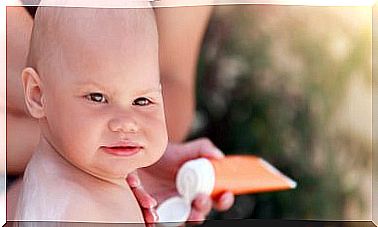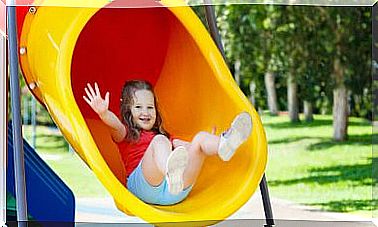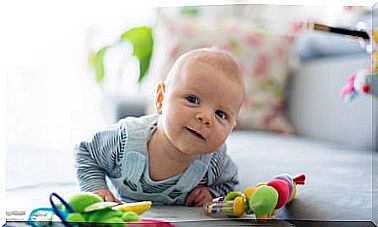7 Traits That Give You Clues About Your Child’s Personality

All children in their first years of life give clues about what their personality will be like in the future, you just have to know how to read the little signs that it gives you. With one year of age, generally, each child already manifests his own character. You cannot act the same with a happy child as with a serious one, with a calm one than with an active one. Therefore, to educate your child well you must know his way of being.
The way of being of a child is conditioned by the environment that surrounds him, the experiences he has and the way in which he is treated.
7 traits that give you clues of what his personality can be like
Activity level
If he’s very active, you should give him plenty of opportunities to move. You need space, both inside and outside the home. With this type of children it is necessary to try to reduce, as far as possible, the long outings that force them to be quiet for a long time. It is not that he behaves badly, it is that he is. When it matures it will adapt better, but for now it cannot be controlled.
If, on the other hand, the child is calm and we are very active, his behavior may surprise us or frustrate us, but it is better to accept him as he is and enjoy the advantages of his way of being. However, a true excess of both activity and passivity can indicate health problems.
The regularity of habits

This also marks the personality and by this we refer to the regularity of biological functions such as hunger, sleep or bowel movements, among others. Very regular children make it easier for parents to organize the day, although also, on the other hand, it is difficult to change their routines in the event of trips or other unforeseen events.
Irregular children eat or sleep poorly until parents realize they lack a steady rhythm. It is convenient to gently impose a schedule on them. Going to bed and eating at set times will make them feel that life is predictable, even if their internal rhythms are not. These children may take longer to learn to control pee and poop, so be especially tolerant of them.
Adaptability
There are children who adapt easily to changes and are considered a blessing, but parents must remember that, like all children of this age, they too need stability and routines.
For those who cannot bear changes, it is best to maintain daily routines as much as possible. But as a certain level of changes and novelties, which are inevitable and even convenient. The trick is to graduate those changes. New meals, for example, will be made little by little and one at a time. By giving them frequent and easy opportunities to try new things, we help them better tolerate change.
Reaction to novelty
This is another clue that we must observe, the ease of some children to accept new people and situations paves the way for many difficulties, although the problem may be their excessive sociability with strangers or the tendency to move away.
Those who withdraw should not be pressured for it, but quite the opposite: they should be prepared and given their time. It is essential to inform them in advance of changes and new circumstances. We have to understand them in this character trait and not make them feel that we value them less for it.
Reaction intensity

This trait refers to the intensity with which the child expresses his emotions. It manifests itself, for example, in the force of her laughter and crying. With the most intense children, one must distinguish, for example, when they should be comforted because their despair is justified, or when they should be ignored because their outbursts of rage are more theatrical.
With softer children, the danger may be that their needs are ignored. If they don’t throw tantrums and protest, they may not get the attention they deserve. You have to differentiate the more subtle nuances with which they express their feelings and encourage them to be more assertive and assert themselves.
Attention and persistence
At an early age, attention is unstable, but while some children go from one activity to another in less than a minute, others can dedicate themselves to an object or activity for five, ten, fifteen minutes, and even longer. The most unstable need us to accompany them in their games, talk to them about them and encourage them to persist. It is not good to offer too many toys at once.
Distraction
The great activity and distraction of many one-year-olds leads many parents to think that their child is hyperactive, a circumstance difficult to diagnose at such a young age. In any case, it is always advisable to maintain a calm environment around them, low in stimuli.
They have the advantage that it is easy to make them go from one activity to another without being opposed. Those who are more difficult to distract may be more stubborn and oppositional, so it is advisable to notify them in advance of changes. On the contrary, they are more autonomous.









